
Assembly members met on 9 and 10 October for the second weekend of the Citizens' Assembly. Members focused in on how the UK's democratic system works and started to think about the limits placed on the government of the day.
Members heard from a range of speakers over the weekend who gave presentations on different ways of doing democracy and the idea of potential constraints on government.
On this page, you can find the agenda for the second weekend and links to videos of the plenary sessions and the speakers' presentations. Assembly members received a number of documents before the weekend:
- An updated glossary of terms related to democracy and the UK's democratic system
- Speaker biographies
- A briefing paper on how politics is taught in the UK
Assembly members spent much of the weekend discussing the issues among themselves in small groups. Please note that recordings of these small-groups are not publicly available, so that members can feel uninhibited in expressing their ideas.
Weekend 2 Agenda
Session 1, Saturday morning – 10:00 – 12:30
Watch the plenary sessions and speaker presentations from session 1 in full or click the links below to watch the presentations individually.
- Welcome back to the Assembly and introduction to the morning session
- Introduction to the UK’s democratic system – presentations from Alan Renwick, Meg Russell, Anand Menon and Michael Olatokun, with time for discussion between talks
- Wrap up
Session 2, Saturday afternoon – 14:00 – 16:30
Watch the plenary sessions and speaker presentations from session 2 in full or click the links below to watch the presentations individually.
- Introduction to the afternoon session
- Initial small group discussion
- 'What limits, if any, should be placed on what a democratically elected government can do?’ – presentations from Meg Russell, Jill Rutter, Michael Olatokun and Nicola McEwen, with time for discussion between talks
- Wrap up
Session 3, Sunday morning – 10:00 – 12:30
Watch the plenary sessions and speaker presentations from session 3 in full or click the links below to watch the presentations individually.
- Introduction to the morning session
- Small group discussion
- Introduction to potential constraint mechanisms – presentation from Alan Renwick
- Break
- Small group discussion
- Wrap up
Speaker biographies
Professor Alan Renwick
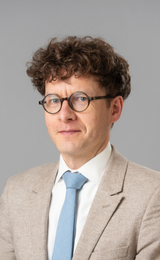
Alan Renwick is the head of the project that the Citizens' Assembly on Democracy in the UK is part of. This project is investigating what kinds of democracy people in the UK want, and is called Democracy in the UK after Brexit. He is Deputy Director of the Constitution Unit and Professor of Democratic Politics at University College London (UCL). He carries out research into how citizens can take part in democratic politics and policy-making, particularly elections, referendums, and citizens’ assemblies. He also led the Citizens’ Assembly on Brexit, which was held in 2017.
Professor Meg Russell
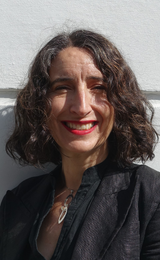
Meg Russell is one of the organisers of the Democracy in the UK after Brexit project. She is also Director of the Constitution Unit and Professor of British and Comparative Politics at UCL. An expert on all things to do with the UK Parliament, her wide-ranging research interests also include the role of referendums and citizens’ assemblies, the organisation of political parties, and female representation in politics. She is a Fellow of the British Academy and a Senior Fellow at UK in a Changing Europe. As well as her academic work, Meg has worked as a researcher in parliament itself, and as an adviser to a previous Leader of the House of Commons.
Professor Anand Menon
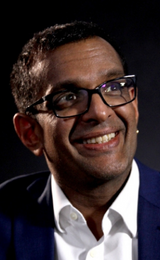
Anand Menon is Professor of European Politics and Foreign Affairs at King’s College London (KCL). He is also Director of UK in a Changing Europe, an award-winning academic initiative that conducts research into the relationship between the UK and the European Union. A regular on our screens and radios, with appearances on shows such as Question Time and the Today programme, he brings a wealth of knowledge on a wide range of topics regarding democracy in the United Kingdom today.
Michael Olatokun
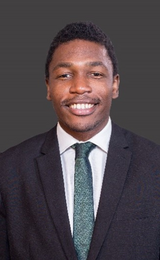
Michael Olatokun is Research Leader in Citizenship and the Rule of Law, and Head of Public and Youth Engagement at the Bingham Centre. The Bingham Centre aims to advance the rule of law across the world. Michael also leads ‘Citizenship and the Rule of Law’, a nationwide programme teaching young people about the rule of law and human rights that has engaged over 10,000 people. In addition to his charity and citizenship work, Michael has frequently contributed to House of Lords and House of Commons committees which make recommendations to the government.
Jill Rutter
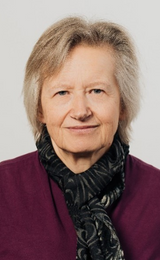
Jill Rutter is a Senior Research Fellow at UK in a Changing Europe, based at King’s College, London, and a Senior Fellow at the Institute for Government, a leading think tank that aims to make government more effective. She possesses extensive experience of working for government, having been a senior civil servant in 10 Downing Street, the Treasury and the Department for Environment, Food and Rural Affairs (Defra). Jill writes and broadcasts extensively on the civil service, government and Brexit.
Professor Nicola McEwan
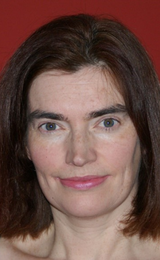
Nicola McEwen is Professor of Territorial Politics at the University of Edinburgh. She has published work on a variety of topics relating to democracy in the UK today, including on devolution, independence, intergovernmental relations and elections. A frequent commentator on contemporary political debates, she has acted as an adviser on intergovernmental relations to the Scottish government and the Scottish Parliament. Nicola was founding Co-Director of the Centre on Constitutional Change. She is also a Senior Research Fellow at UK in a Changing Europe, and a Fellow of the Constitution Unit.
 Close
Close



